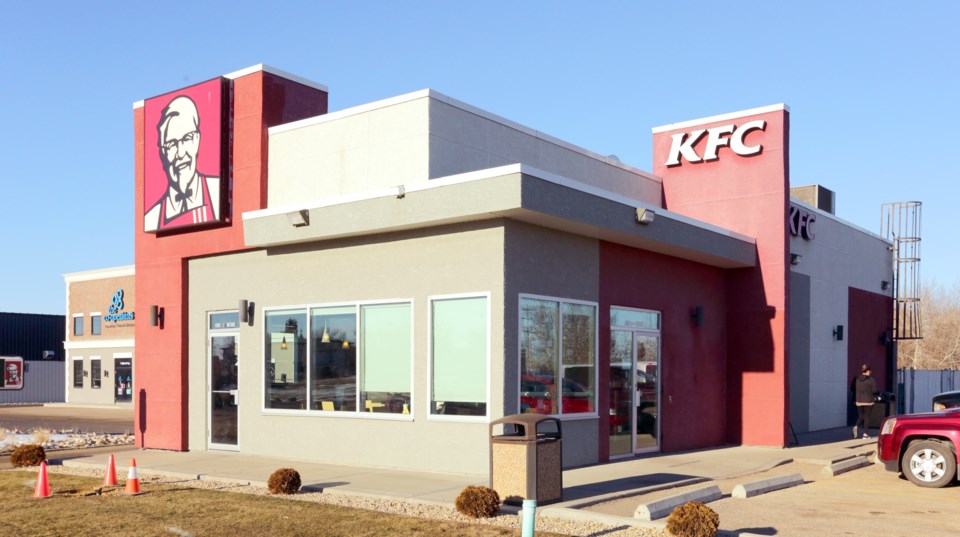Drive-thru restaurants were hot properties for consumers during the pandemic when in-person dining shut down; now a major drive-thru portfolio set to hit the market this fall is on the menu of investors.
The portfolio, consisting of 18 quick-service restaurants overseen by Franchise Management Inc. (FMI), is listed with Marcus & Millichap’s NNN Group, based in Vancouver. FMI acquired the locations last year, leasing the real estate from the former owner, who is now divesting itself of the real estate.
Spread across B.C., Alberta and Saskatchewan, the portfolio is expected to attract a wide range of buyers, from private investors to institutions, syndicates and even individual owner-users.
Demand for drive-thru QSR properties has been steadily growing for over a decade, according to Marcus & Millichap, and it’s showing no signs of slowing down.
Jon Buckley, senior managing director at Marcus & Millichap, said the rising cost and complexity of new developments have only made existing assets more valuable.
“The barriers to entry in the QSR drive-thru space are getting higher. It’s not just about finding the right location anymore; the costs and regulations surrounding development have become more complex, which has only fuelled the demand for existing assets,” Buckley explained.
This particular portfolio has caught the eye of many investors because it’s such a rare opportunity.
Curtis Leonhardt, first vice-president at Marcus & Millichap, said it’s unusual to see a portfolio of this size hit the market.
“It’s not often that we see an opportunity of this nature,” he said. “I can’t recall a time in the past 10 years where a large portfolio of drive-thrus has been available in the market.”
The pandemic drove investor interest in drive-thrus, which accounted for about half of all QSR sales in the first year of the pandemic.
“All buyers recognize the stability that drive-thru operators have enjoyed, even through the pandemic, and as such, groups see this as a stable offering that is geographically diversified,” Leonhardt said.
What makes this portfolio particularly appealing is its reach across different markets. While many of the properties are located in secondary or tertiary markets, this may be part of the appeal.
Joe Genest, first vice-president, investments, explained that investors are increasingly looking to smaller markets where they can still find solid returns.
“Typically, investors are looking to make use of bank financing. Drive-thru QSR properties in core markets generally trade at cap rates below or at five per cent, so groups are limited with how much debt they can use – 50 per cent at the maximum, if that,” Genest noted. “Given the stability and covenants of the national QSRs, investors are often comfortable going to these smaller markets for better returns.”
FMI adds a layer of confidence for investors. It’s one of North America’s largest franchise operators, managing over 400 locations across the continent, including 168 KFC outlets in Canada.
“FMI is not just a franchisee; they are one of the most respected operators in North America,” Buckley said. “Their scale, experience and commitment to excellence make this portfolio incredibly appealing to investors. This is a company that has proven itself time and again, and their long-term commitment to these properties speaks volumes about the stability they offer.”
With such a strong tenant in place, the properties offer not just stability but also the potential for long-term income.
“The QSR sector, and especially the drive-thru model, has proven to be extremely adaptable to changing consumer behaviours,” Leonhardt said. “We saw this during the pandemic when many traditional retailers struggled, but drive-thru QSRs were able to continue operating at full capacity. That adaptability is a huge draw for investors.”
It’s also baked into the assets, with the drive-thru infrastructure making the assets amenable to a wide range of future tenants. Regardless of whether KFC stays or another national QSR brand takes its place, the assets are designed to perform well in the long run.
“Investors today want to know that they’re buying into properties that can easily transition if needed,” Leonhardt said. “The versatility of these assets is a big part of their appeal.”
A timeline for the sale process has not been set.



